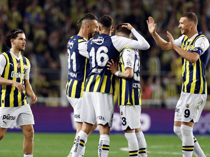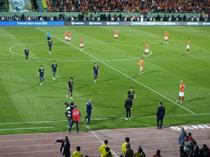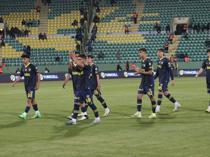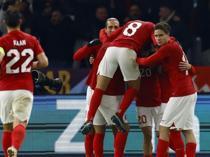History weighs on Poland- Russia Euro 2012 face off
WARSAW - Agence France-Presse
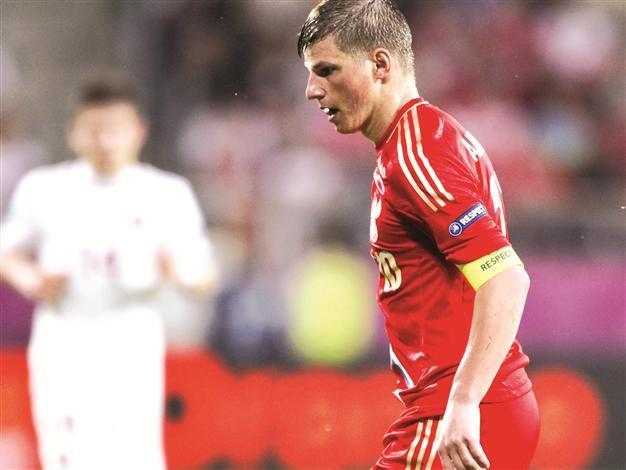
Russian forward Andrey Arshavin controls the ball during the Euro 2012 football match between Russia and Czech Republic at the Municipal Stadium. AFP Photo
The conflict, misunderstanding and bloodletting which has marked the history of Poland and its larger eastern neighbor Russia -- at times its master -- is weighing-in heavily at Euro 2012.Poland and Russia face off in Warsaw today, in a match that is drawing more concern about what will happen off the pitch than on it.
Russian fans in their thousands plan to march through Warsaw to arrive at the match venue -- Poland’s brand new national stadium.
In numbers unseen in the Polish capital since World War II, the Russians will also be marching on their June 12 national day.
With pockets of Poland and Russia fans having a reputation for violence, concern is running high that clashes could erupt even before the opening whistle blows.
According to Russian political analyst Fedor Loukianov, “football is like a magnifying glass for bilateral relations and simply brings tensions which are already exist into greater focus.”
“Our history is marked by 400 years of conflict: Poland was once an empire like Russia, then Russia took part in four partitions of Poland. If we add the woes of communism and World War II to that, things become very complicated indeed,” he told AFP.
President dies in Russia
For some Poles, very recent history is the touchiest subject.
The April 10, 2010 crash of a Polish presidential jet in Smolensk, western Russia, in which president Lech Kaczynski perished is seen as one of the most tragic episodes in Poland’s turbulent history.
The Tupolev 154 plane carrying Kaczynski, his wife and scores of Poland’s leaders came down during an attempt to land at a fog-veiled airport.
The Kaczynski-led delegation was on its way to Katyn to commemorate the 70th anniversary of a massacre of thousands of Polish officers by the Soviet secret police during World War II.
In a gesture of reconciliation Sunday, Russian Football Union chief Sergey Fursenko unexpectedly lay a large floral wreath at the foot of a memorial plaque dedicated to Kaczynski at Poland’s presidential palace.
“Football is outside politics,” Fursenko said. “With this tradition we are supporting people and demonstrating our position. We are just footballers,” he added.








